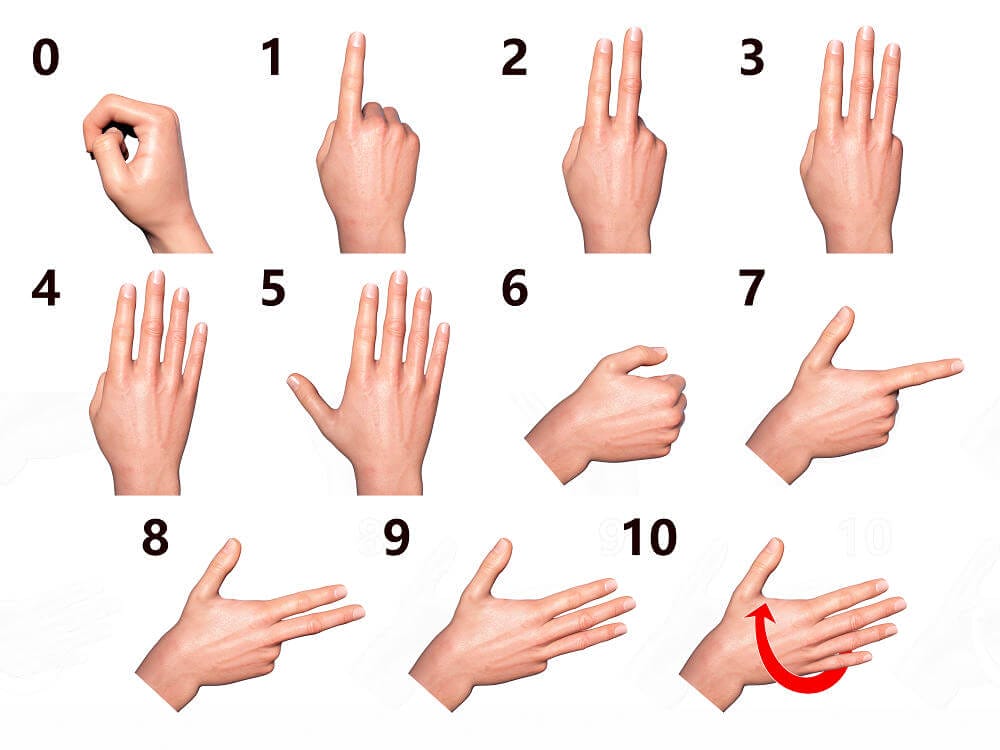Why Learn Auslan? The Benefits of Australian Sign Language
Why Learn Auslan? The Benefits of Australian Sign Language
More than 3.6 million Australians are living with hearing loss. Although many rely on sign language for daily communication, most Australians still do not know very much about Australian Sign Language (Auslan). This lack of understanding is worrying, as in order for us to build towards a more inclusive future where sign language is an ordinary part of society, this current situation needs to change. But if you’re still wondering, ‘why learn Auslan?’, then the answer is threefold – to create a more inclusive society, to increase your brain development, and to join the welcoming and varied Australian deaf community.
The team at St Jude’s have created this article to answer the question ‘how did Auslan evolve?’, explain why you should learn Auslan, and investigate the difference between Auslan, American Sign Language and Key Word Signing.
What is Auslan?
Auslan is the shortened name for Australian Sign Language, the main sign language that is used by the Australian deaf community. Auslan uses hand, arm and even body movements to communicate the language, and sometimes ‘finger spelling’ is used to describe a word that doesn’t have a common sign attached to it. Australian Sign Language originated 200 years ago, when British, Scottish and Irish people brought sign language to Australia. The language evolved over time and became unique, and now almost 20,000 people across Australia use Auslan every day. Auslan also has two main dialects, nique, and now almost 20,000 people across Australia use Auslan every day.
Northern and Southern, which have a variety of different signs for things like colours and animals.There are several indigenous Australian sign languages, and some of the indigenous signs have been incorporated into the Far North Queensland dialect of Auslan.
How Does Auslan Differ From American Sign Language (ASL)?

Australian Sign Language (Auslan) and American Sign Language (ASL) are completely different, just as different as French and English are in spoken language. American Sign Language (ASL) is derived from French Sign Language and a variety of other local sign languages from the USA. Auslan is similar to British Sign Language and New Zealand Sign Language, and it uses a two-handed alphabet, unlike ASL, which uses a one-handed alphabet.
What Do Auslan and Key Word Signing Have in Common?
Key Word Signing is used by those who have communication difficulties. It combines manual signs with natural movements and is used to encourage language development. Auslan is the sign language used by the Australian deaf community and therefore is quite different to Key Word Sign. However, Key Word Signing has a core vocabulary of words that mean different concepts, and each concept is linked to an Auslan hand sign.
Someone using Key Word Signing would use hand signs while they spoke to represent the main words or concepts in the sentence – this is sometimes called ‘multi-modal communication’. Key Word Sign isn’t a full sign language, and it uses the Auslan signs in the same way as spoken English. Auslan has a different word order than the English language, and therefore even though Key Word Sign borrows signs from Auslan, it’s used quite differently.
What Are the Benefits of Learning Auslan?
Social Interaction
For someone who is deaf, learning Auslan can mean they are able to make friends more easily and have more opportunities for social interaction and workplace progression. Instead of relying on hearing aids, they will have a backup for any moments where they are interacting with another person who knows Auslan. If you’re not hearing impaired, but are interested in learning Auslan, then it can also open up social interactions, as you will be able to communicate with members of the deaf community.
The more people who learn Auslan, the closer we are to creating a more inclusive society for people with hearing impairments. There is also a sense of belonging to a community when you know Auslan, as you immediately have something in common with others who know the language.
Cognitive Development
Someone learning Auslan can actually experience improvements in their cognitive development. These improvements can include increased mental flexibility and stimulated brain development because your neural pathways are becoming more developed from learning a visual language rather than using your normal spoken language. Learning Auslan can also improve your brain’s motion processing and increase mental retention skills. Just like with learning any other language, you gain a new, handy skill, and expand your knowledge of how languages work.
How to Learn Auslan?

If you’re keen to learn Auslan and don’t know where to start your sign language journey, don’t worry – there are multiple pathways you can go through. If you just want some general information, then we recommend you visit the website of the hearing impaired society for the capital city of your state – they can also advise you about which avenue of study is most suitable. Many organisations offer Auslan training, including Access Plus, The Deaf Society, and The Auslan Company. Just jump in and start, you could even test the water by watching some instructional videos on Youtube and get a taste for what is involved and whether it’s the language for you.
How an Occupational Therapist Can Help Learn Australian Sign Language
For those that may be living with hearing loss or other hearing-related issues, there are a few forms of support that can be helpful. One such support is an occupational therapist, who can help those living with hearing loss develop, recover, improve and maintain the skills needed for daily living and working.
Occupational therapists and speech therapists at St Jude’s can assist both adults and children with hearing loss, improve their confidence and participation in social settings, whilst working and out in the community.
Auslan Sign Language Workshops with St Jude’s
Here at St Jude’s, we run professional Key Word Signing workshops, to assist you or any of your family members who could benefit from this helpful communication aid. We also offer speech pathology services, and quality disability accommodation, to ensure that anyone living with a disability has the support they need.
St Jude’s has over 38 years of experience providing compassionate and experienced disability support services to people across Perth and the South West. So don’t hesitate to contact our friendly team today to find out more.